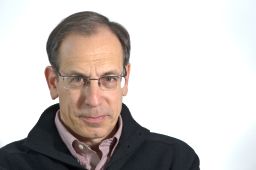Editor’s Note: Andrew Cohen is an author and journalist who writes a nationally syndicated column for the Ottawa Citizen. His latest book is “Two Days in June: John F. Kennedy and the 48 Hours that Made History” (Signal/Random House). He is a Global Fellow at the Woodrow Wilson International Center in Washington. The opinions expressed in this commentary are solely those of the author.
When terror came to the streets of Toronto this week – in one of the worst mass killings in this country’s history – it challenged the sepia-soaked image of Canada as “a peaceable kingdom.”

Like other large, diverse democracies, Canada has learned that it is not immune to random atrocities. Four years ago, a gunman walked into Parliament in Ottawa, hunting politicians. He murdered a guard before he was killed.
What was striking in Monday’s van attack, which killed 10 people and injured 14, was the public response: a mix of shock and incredulity tempered by reserve and order. Politicians of all stripes were calm. The media was careful. The police were disciplined. And the people were unfazed.
Instead of hysteria, accusation and anger, there were sorrow and sympathy. No xenophobic calls for vigilantism or limits on freedom. It was an extraordinary exercise in restraint – a particularly Canadian response.
The misfit in a white rental van who sped down the crowded streets of north Toronto attacked the country’s largest and most diverse city. Toronto – more than half of whose 6.4 million residents were born abroad – had never seen that kind of carnage.
But no politician or public official instantly blamed terrorism. Nor did they point at Canada’s immigration system, one of the most open in the world, which has admitted thousands of Syrian refugees since 2015. Alone among major Western democracies, Canada has no nativist political party. One of the world’s most heterogeneous countries, it has no history of sectarian unrest.
As columnist John Ibbitson of The Globe and Mail wrote: “Past experience suggests that barring some unexpected revelation, no party will try to exploit this tragedy for political gain. We don’t do that here.”
Naturally, media in the country’s communications capital flooded the zone. But live television did not report what it did not know. It did not echo unfiltered social media (which, like anywhere, was abuzz with conjecture.) It is believed to be CBS, not a Canadian news organization, which first identified the suspect: Alek Minassian, 25, a student and software engineer, who has been charged with several counts of murder and attempted murder.
The police responded quickly and quietly. What was remarkable was their self-discipline, particularly the officer who arrested Minassian. Caught on video, he cornered the man outside his crumpled van and patiently talked him into surrender.
In other places, the police might have killed him on the spot. (After a widely publicized killing of a suspect in Toronto in 2013, police introduced training for such situations.) So, when Minassian warned he had a gun in his pocket, the officer said, “I don’t care.” He repeatedly ordered Minassian to get down; he soon obeyed. Because the suspect was not killed, he can be questioned.
Today the officer is being hailed in Toronto as “The Cop Who Wouldn’t Shoot” – the most dramatic example, on a dramatic day, of a moderate people in the midst of evil.

